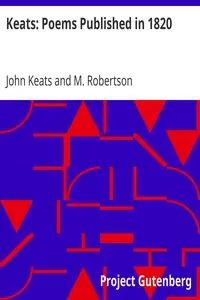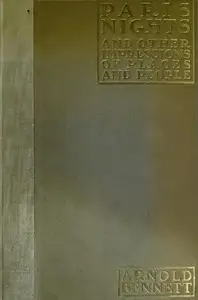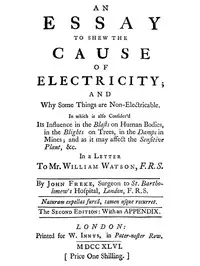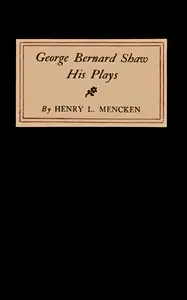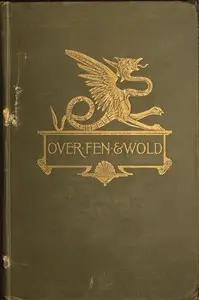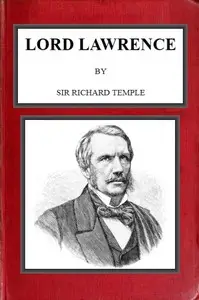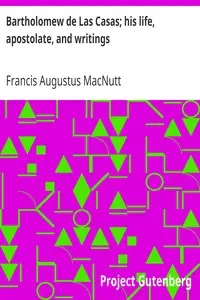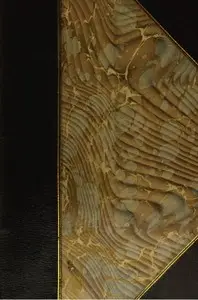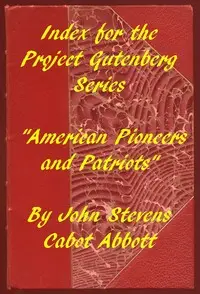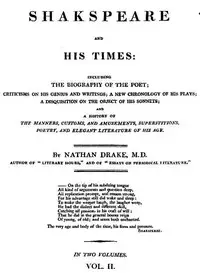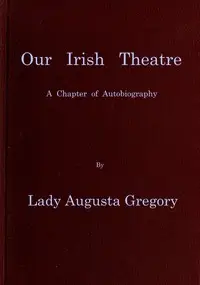"Letters of John Keats to Fanny Brawne" by John Keats is a collection of personal letters written in the early 19th century. The collection reveals the intimate correspondence between the renowned poet and his beloved Fanny Brawne, capturing the passionate and turbulent nature of their relationship during the final years of Keats's life. Through these letters, readers gain insights into Keats's emotional struggles, artistic ambitions, and romantic affections, making the collection a crucial document for understanding both the poet and the era. The opening of the collection introduces the reader to the context of these intimate letters, composed predominantly during moments of longing and introspection. Keats reflects upon his deep feelings for Fanny, expressing a mix of vulnerability and yearning. In the first few letters, he shares his emotions regarding their proximity and the challenges of their relationship, revealing his dedication to both Fanny and his art. His words resonate with an intense passion, as he grapples with the dichotomy of love and the fears of separation and mortality, thereby establishing the tone for the poignant exchanges that follow throughout the correspondence. (This is an automatically generated summary.)
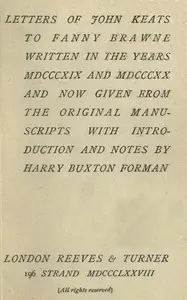
Letters of John Keats to Fanny Brawne Written in the years MDCCCXIX and MDCCCXX and now given from the original manuscripts
By John Keats
"Letters of John Keats to Fanny Brawne" by John Keats is a collection of personal letters written in the early 19th century. The collection reveals th...
Genres
Released
2019-10-05
Formats
epub
mobi
epub (images)
epub3 (images)
mobi (images)
Free Download
Overview
About the Author
John Keats was an English poet of the second generation of Romantic poets, along with Lord Byron and Percy Bysshe Shelley. His poems had been in publication for less than four years when he died of tuberculosis at the age of 25. They were indifferently received in his lifetime, but his fame grew rapidly after his death. By the end of the century, he was placed in the canon of English literature, strongly influencing many writers of the Pre-Raphaelite Brotherhood; the Encyclopædia Britannica of 1888 called one ode "one of the final masterpieces".
Total Reviews
10.0k
Total reviews from Goodreads may change






